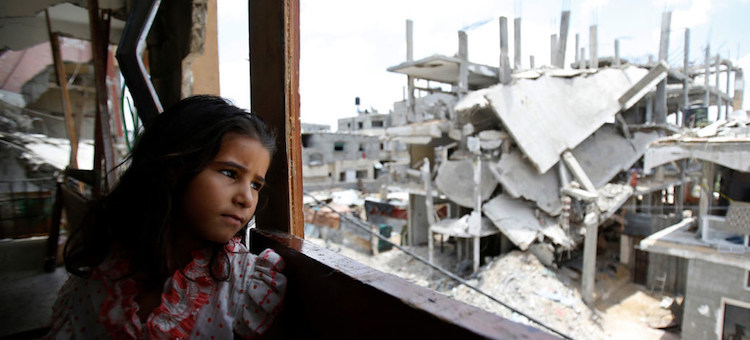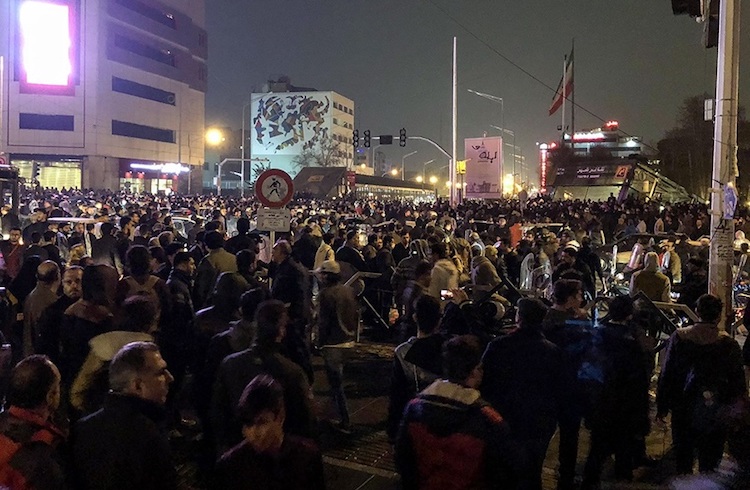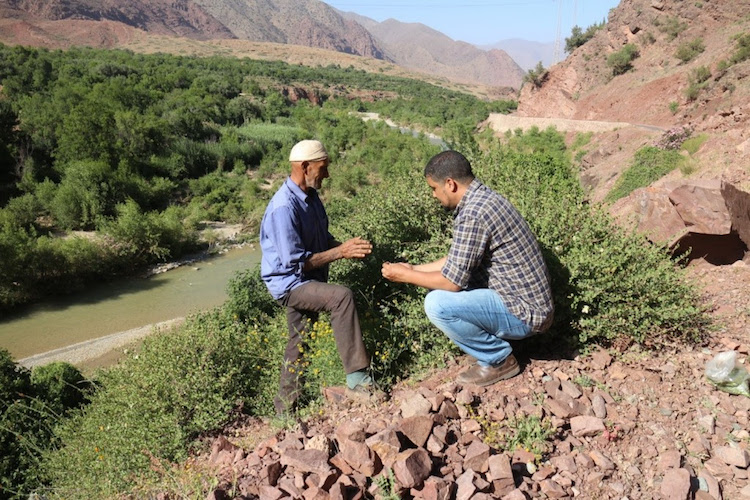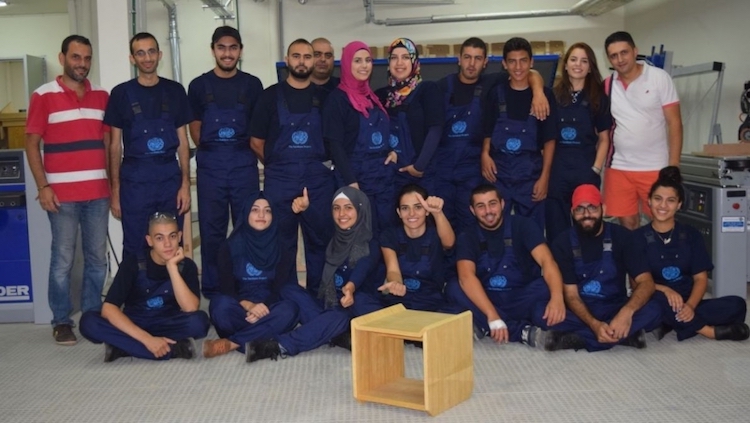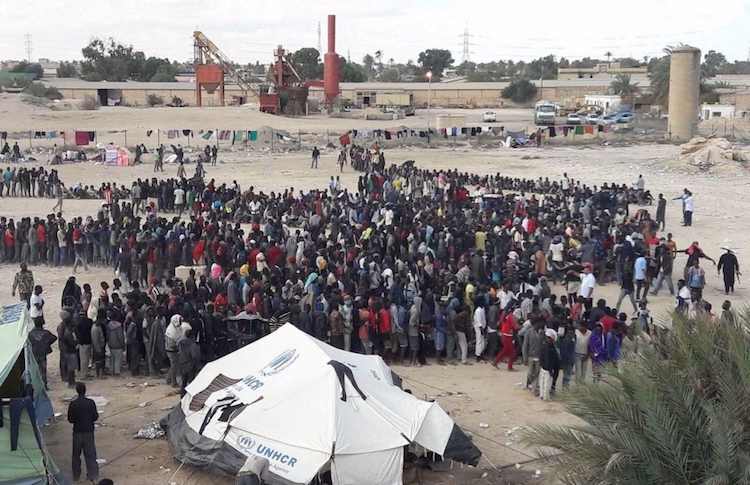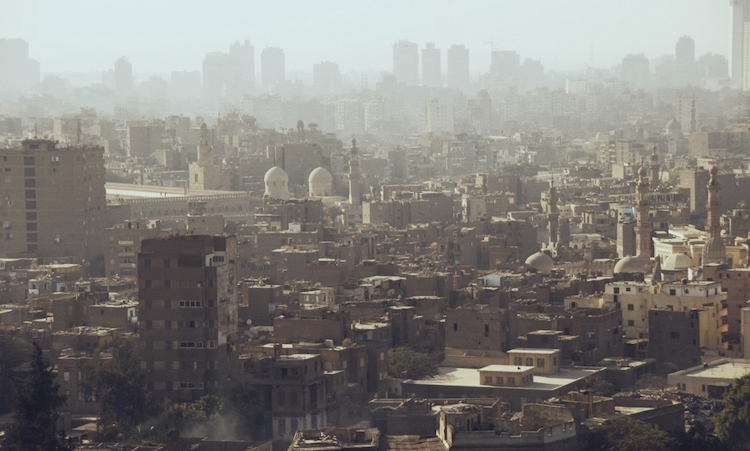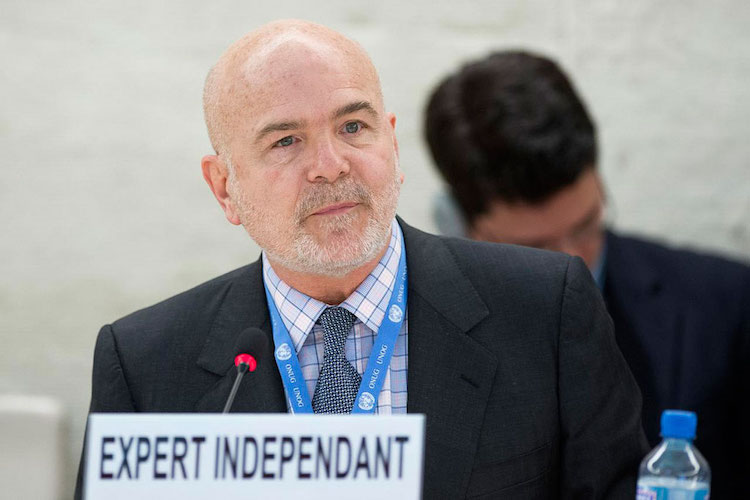By Ramesh Jaura UNITED NATIONS (IDN) – The outgoing UN High Commissioner for Human Rights, Zeid Ra’ad Al Hussein, has expressed “acute concerns” over the human rights situation in the Occupied Palestinian Territory, including the situation in the occupied Gaza Strip, which in recent months has escalated dramatically, with the potential to generate threats to […]
Education Isn’t the Only Key to Female Employment in Morocco
Viewpoint by Katherine O’Neill* MARRAKECH (IDN) – The Middle East and North Africa (MENA) has the lowest female employment rate of anywhere in the world. Though most countries in the MENA region, including Libya and Iran, have seen gradually increasing rates of working women, Morocco’s female labour force participation (FLFP) rate has actually decreased since […]
Iran Sandwiched Between ‘Regime Change’ Threat and Menacing Discontent Within
By Mortezagholi Raissi BERLIN (IDN) – Plagued by domestic turmoil and the Trump Administration threatening regime change, not only the government in Iran but the entire theocratic regime too are faced with a far from envious situation, according to political observers. What started off as protests spurred on by the deteriorating economic conditions in Iran […]
Morocco Protects Traditional Crops and Wild Medicinal Plants
By Abderrahim Ouarghidi* MARRAKECH (IDN) – The Moroccan proverb ‘New things have a charm and old ones should be preserved’ has wide applicability in current Moroccan agricultural practices and attitudes toward conventional and local crop varieties. The revealing adage is part of the Moroccan identity and way of life. Moroccan people are committed to establishing […]
Japan Funds UNIDO Project to Boost Employment in Lebanon
By Reinhardt Jacobsen VIENNA | BEIRUT (IDN) – The Government of Japan has announced that it will fund a project to create jobs in the carpentry and construction sectors in northern Lebanon. This is one of eight new projects implemented by the United Nations Industrial Development Organization (UNIDO) in Ethiopia, Iraq, Jordan, Lebanon, Liberia, Nigeria, […]
Experts Slam Syria, Slate Trump and Favour a UN Mechanism
By J C Suresh WASHINGTON, D.C. (IDN) – The Trump administration’s latest missile strikes in response to Syrian chemical weapons use is not embedded within a broader U.S. strategy to deter further chemical weapons use, protect Syrian civilians caught in the horrible Syrian civil war, and bring a political resolution to the seven-year misery of […]
Embattled Netanyahu Aids Trafficking Refugee Route to Slavery in Libya
By Mirjam van Reisen and Gilad Liberman BRUSSELS (IDN) – The previous two days have been rather turbulent in Israel’s policy towards African refugees seeking asylum. On April 2, Israel’s Prime Minister Benjamin Netanyahu declared a halt to deportations to Rwanda, believed to be the “third-country” he had mentioned for the first time, while announcing […]
Corruption and Crackdowns on Civil Society Continue in Arab States
By Sean Buchanan This is the fourth in a series of reports highlighting salient aspects of Transparency International‘s latest analysis on challenges posed by corruption around the world as well as successes and failures of efforts targeting a scourge that eats into the vitals of human rights. – The Editor. LONDON (IDN) – In a region […]
UN Agency in Talks with Israel on African Asylum Seekers
By Jaya Ramachandran GENEVA | TEL AVIV (IDN) – UNHCR, the UN Refugee Agency, is negotiating with Israel to resettle a portion of African asylum seekers in third countries deemed by the UN to be “safe,” perhaps including Western countries, in exchange for some of the refugees to be given permanent residency in Israel, according […]
UN Experts Censure Saudi Arabia for Human Rights Violations
By Jaya Ramachandran GENEVA (IDN) – Despite being elected as member of the Human Rights Council at the end of 2016, Saudi Arabia has “continued its practice of silencing, arbitrarily arresting, detaining and persecuting human rights defenders and critics,” according to a group of top United Nations human rights experts. “We are also seeking the […]

